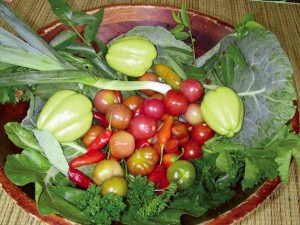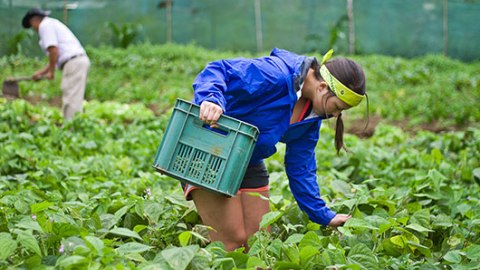Costa Rica News – Since 1990, the organics product market has grown from statistically next to nothing to being a $55 billion dollar industry by 2009. According to Organic Monitor.com, this type of demand has caused an increase in organically managed farmland , growing at 8.9 % per year, from 2001 to 2011. As of 2011, 92.000 acres were organically farmed, which represents around 0.9% of the farmland in the world.
 The International Federation of Organic Agriculture Movements reports, “Organic agriculture is a production system that sustains the health of soils, ecosystems and people. It relies on ecological processes, biodiversity and cycles adapted to local conditions, rather than the use of inputs with adverse effects. Organic agriculture combines tradition, innovation and science to benefit the shared environment and promote fair relationships and a good quality of life for all involved…”
The International Federation of Organic Agriculture Movements reports, “Organic agriculture is a production system that sustains the health of soils, ecosystems and people. It relies on ecological processes, biodiversity and cycles adapted to local conditions, rather than the use of inputs with adverse effects. Organic agriculture combines tradition, innovation and science to benefit the shared environment and promote fair relationships and a good quality of life for all involved…”
Based on the standards set by IFOAM, many countries, such as Costa Rica, regulate and enforce organic agricultural methods , such as:
Biodynamic farming which is a comprehensive approach, with its own international governing body.
The Do Nothing Farming method which focuses on using a minimum of mechanical cultivation and labor for grain crops.
French intensive and biointensive methods which are well-suited to organic principles.
And other techniques like holistic management, permaculture, SRI and no-till farming (the last two which may be implemented in conventional or organic systems).
One farm in Costa Rica is developing a system of growing plants in coconut shells and used rice bags that create special draining systems.
Organic farming is good for the land, the population, and the farmers. It feels good and save money to grow your own food. It’s nice to know that your family is not consuming chemicals. Costa Rican organic farmers are careful to consider the position of the sun and moon for planting in specific areas. Certain flowers that keep bugs away are planted alongside vegetables instead of spraying pesticides on them.
Organic farming creates a harmony between home and habitat. It completes the water, land, food circle in the way it’s found in nature. Organic initiatives provide clean water and fresh food to entire communities in Costa Rica. Some even build their communities with green friendly materials and generate solar energy. It’s not just a way to farm, it’s a lifestyle.
There are volunteer opportunities in the organic farm market. WWOOF Costa Rica places volunteers on farms that need help and the foreigners learn a lot in a short time. They participate in daily chores related to permaculture and biodynamics. These can include harvesting, maintenance, animal care, and soil preparation. In addition, the volunteers learn about the local environment and culture and leave as more conscious and responsible consumers.
By Kerry La

